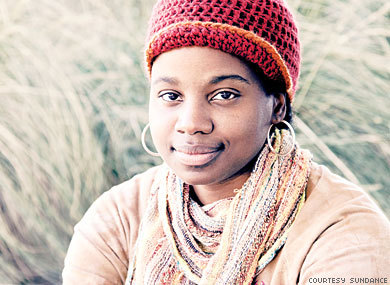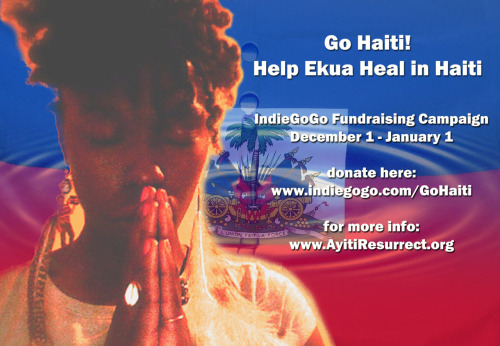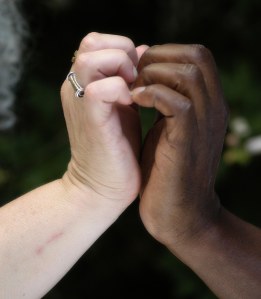Monday, December 26, 2011
Real Reading Rainbow: Queer Black Intergenerational BookLUST! Kwanzaa edition!
Kwanzaa is challenging for a queer black feminist. Check out some of my favorite books by my favorite poets and how they challenge, qualify or add insight to the seven principles of Kwanzaa.
Friday, December 23, 2011
Tuesday, December 13, 2011
Fightin’ Words: On Awkward Black Girl and the CFC
Sent to you by moya via Google Reader:

The above saying was one of the first things I thought of when I heard about the response (and ensuing "controversy") to the latest episode of the increasingly popular webseries, The Misadventures of Awkward Black Girl, which has garnered praise from several websites including this one. Like many, on the first Thursday of each month or thereabouts, I log-on toYoutube and watch Issa Rae's extremely likable character, J, get in and out of awkward situations at work and in her dating life. This last clip is no different. After having dissed her best friend, Cece to continue trick-or-treating with one of her suitors, White Jay, J has to implore Cece to forgive her, because after an awkward moment on her date with White Jay, she needs advice. The trouble is this: the couple run into White Jay's ex-girlfriend, a moment that renders him speechless and J invisible. As J and Cece discuss what happened, J admits to feeling like Missy Elliott (she was wearing a garbage bag; see Missy's video "The Rain [Supa Dupa Fly]" to catch the reference) next to Angelina Jolie, to which Cece replies that "[White Jay's] ex-girlfriend is a tranny bitch in heels."
A letter appeared on the Crunk Feminist Collective Tumblr site in response, mainly, to this bit of dialogue and some other issues the composers of the letter wanted to bring to the fore.* A mini-internet controversy commenced in response to the response, with commenters calling the writers of the letter too sensitive, too politically correct, too much. In other words, many were just not going to allow any sort of critique of ABG stand, while others defended the perspective the letter took, while still others simply instigated everything. My purpose here is to do none of that. Rather, I'd like to unpack what I think the entire issue circulates around, which, put succinctly is this: the joke just didn't work.
Part of what makes Rae's series successful is main character J's likability, and part of this likability is the audience's ability to readily identify with J's context, her cultural touchstones. We understand the above Missy reference without the assistance of Google. We appreciate the casual shout outs to Saved by the Bell and California Dreams. We've seen School Dazeas many times as she has; we'd quote Sam Jackson characters in our rap lyrics, too. Her touchstones are ours. To echo one of the central themes of this season, we get J. And we think J, in turn, gets us.
What we also get is that the writers of ABG know how to navigate touchy subjects like race and gender for comedic effect very well. They know what the words mean, they know what they meant, they understand interlocuters' relationship to them and how, then, audiences might respond to their use. They're well-versed. And generally the effect is funny. ABG thrives on our understanding that what happens is ironic and/or absurd. So when the omniracial character uses his racial illegibility to make stereotypical statements, but is later outed as Armenian and has to go to racial sensitivity training, we're supposed to laugh because it's ironic. Sub-plots like that work because we can see how the writers' mastery of the subject matter allows for that kind of manipulation. The writing is less successful when the fat jokes and lines about tranny bitches in heels get used as throwaway dialogue that is supposed to make J feel better and/or audiences chuckle. It becomes clear that the writers were less adept at understanding how those phrases might come off than they are about others.
And I think that's where I can understand what the letter posted on the CFC Tumblr was trying to do, but was unsuccessful because it resembles the kinds of texts people often associate with censorship through the forwarding of politically correct language and language policing. I understand another version of the letter might have read: Hey, FYI: These words may connote some stuff you might not have realized and/or may want to think about the next time you decide to use them. kthxbye. I may have written a version of the note that simply said: I don't think these kinds of jokes work, and here's why... But that message gets buried by the rather unfortunate line, "We have seen your responsiveness to the fans of ABG and we hope that by raising this concern you will respond accordingly by not using such language in future episodes."
Right or wrong, asking/telling people not to say things because they hurt our feelings inevitably engenders the kind of backlash we saw after the letter was published, and truly undermines the other, really useful parts of the note. Instead of a fruitful conversation about what does and doesn't work in this genre, the black versus queer debate was again inflamed and the lede got buried. Now we have, oddly, blackness in one corner and queerness in the other. Even worse, those on either side of the debate are deploying what I, in my secret life of writing stand-up jokes, call The Nigger Test.
Bear with me.
If I were a stand-up comedian, I'd have a joke called The Nigger Test. The Nigger Test is something people use when someone says something that is ostensibly, debatably offensive. It works like this: someone says fag, someone takes offense, some else says, "What's the big deal?" Then someone else says, "If they had said nigger instead of fag, you'd feel differently." In other words, substitute the offensive word in question with nigger, try the statement again, and see if it's offensive now. This test is in the politically correct handbook or something--and I hate it: 1. I'm tired of black people being used as some baseline example of discrimination, as if that's all we're good for; 2. If I am ever in a situation where I'd have to use The Nigger Test, I'm going to gouge out my eyes because the person I'm talking to ended up in the wrong century. Seriously, if your response to hearing someone use The Nigger Test is, "Ohhhhh, I get it now," please leave 2011; 3. Nigger is not a synonym for other offensive words. It is not analogous to other words, not even slave. Nigger has its own history, and it is not available for lease; 4. Slurs and other offensive language have their own histories that need to be heeded and known on their own accord.
Folks defended both sides by using The Nigger Test, and it doesn't work. It didn't work because it obscured the issues the letter writers were concerned with and placed queerness and blackness at odds. It also didn't work because we know that the writers of ABG know how to deploy nigga properly. In addition, The Nigger Test also allowed for the false analogy of ABG and other, non-fictional use of slurs and offensive language like Michael Richards or Don Imus, for example. The fallacy of those comparisons is that the latter examples were moments where such language was used with either lack of forethought or with the precise desire to incite, whereas the scene in ABG offers none of that. Which brings me back to Grandma Charlotte's point: It wasn't simply what Cece said; it was how she said it. Reviewing the scene, it's clear to me that those who wrote it have no Imus-like intentions, which is to say, they know what they're saying is problematic, and that's exactly why they're deploying it. Instead, what I saw was an attempt to say something snarky, funny even without knowing the full context. Like a kid cursing. The remark seemed lazy, haphazard. An attempt at a quick laugh that fell flat.
The joke didn't work. And it didn't work for the same reason the other jokes in the series do, which has nothing to do with being part of the in-group. Rather, it is a matter of being impeccable with language and requires an intimate knowledge of the words that are deployed. Still, eliciting offense instead of laughter does not call for the jettisoning of such language altogether. We must allow words, even the ones that hurt our feelings, to breathe. As writers, we have to be purposeful with our language. And should we choose to water the seeds of certain words, then it behooves us to understand the soil from which they grow. And if we fail at that, then our narratives do, too. It's a risk we take. It's why revision is key. It is why criticism--including the CFC letter--is crucial. It is why Grandma Charlotte, as she told me when I was a child, is always right.
*Full disclosure: I consider myself a friend of Moya Bailey, one of the letter writers, and chatted with her briefly regarding this issue.
N.B. There's a really good scene in the series, Louie that articulates this issue much better than I have. Feel free to skip to the 5:10 mark. *NSFW*
Things you can do from here:
- Subscribe to my best friend gayle using Google Reader
- Get started using Google Reader to easily keep up with all your favorite sites
Monday, December 12, 2011
Superheroes, Supervillains and the Black Feminist Brilliance of Badness

"Quirky Black girls are not quirky because they like white shit; rather they understand that because they like it, it is not the sole province of whiteness."
-QBG Manifesta
This is not one of the lines of the QBG Manifesta that I wrote. In fact I had to look at many examples on google to even understand how the colloquialism "sole province" is used. And I don't think any of these Black Feminist QBG love letters to date have really dealt with this aspect of the QBG constellation. But from the province of my own soul I want you to know that is not because I am some pure Black feminist who has purged all non-radical women of color generated media from my life. Not by far.
In fact, a few months ago I watched the entire series (the entire series!!!!) of Mad Men in an unhealthily short amount of time on netflix. And I think the show is smart. And also quite depressing. After intentionally filling my days and nights with brilliant, radical, brave, self-actualizing women of color and queer folks of color it is a major contrast to watch straight and closeted corporate white people living awful shallow desperate lives that they sometimes have deep moments about. Why did I do this to myself? I asked (myself) while popping more popcorn one day. And then I realized that my need to know what Don Draper/Dick Whitman, the main character on Mad Men, a rich white corporate bewildered would-be patriarch who stole his identity from a dead superior officer in the army towards a class mobility that provides him with eternal emptiness and shame which he medicates by womanizing and over-drinking and raising his eyebrows ironically at people he never thought would be his peers...was not even new. Could it be? This was not the first time that I, a Black feminist poet on assignment, had identified with a character who shared basically none of my characteristics? A rich, tortured white dude with a secret and his own dark orchestral theme music?
Flashback to middle school Lex, afterschool with her siblings eating snacks and watching Batman: The Animated Series (not to be confused with any other Batman cartoons without that specific subtitle). We loved that show. And we were right to love it. It really was one of the few shows on television accessible to kids that had intelligent writing, developed characters and complex stories. I would never say that it was some sort of precursor to transformative justice (the bad guys usually ended up incarcerated in Arkham Asylum/Prison eventually...at least for a while). But unlike the "perps" on, for example today's Law and Order SVU each villian had a story. There was a backstory that made their supervillian actions seem almost logical. They didn't come out of nowhere. They had been severely wronged, usually by the dominant system. They were freaks and weirdos. They were super-smart and profoundly misunderstood. They had a vision that was completely unacceptable to the ruling norms of Gotham and creative elaborate plans that would definitely cause a lot of damage.
"I'm having a bad day. I'm sick of people trying to shoot me, run me over and blow me up." (Kicks Batman in the head.) Harley Quinn, Batman: The Animated Series
Writing about it now, is it any wonder that my siblings and I, 3 silly black genius scholarship kids in classrooms and hallways all day with rich kids at a white school ate that up. We loved it. If we had been rich we could have supported the franchise. Kept the showing going longer than it did. But we watched the reruns. It seemed to never get old. It seemed to bridge the 8 year age gap between all of us. Even now as grown-ups Batman: The Animated Series (not to be confused with any other incarnation of the Batman myth...although we do collectively endorse and obsess over the Dark Night films) is still a major theme of our gift giving. I almost cried with gratitude when my brother gave me the box set of the entire series for Christmas.
"I tried to be good. I really did. But if that's not good enough, fine."-Harley Quinn Batman: The Animated Series
And when we could, as kids we asked for action figures and got mini-Batmobiles and even a Batman themed batcave tent that we could actually fit in (well not all three of us at once...but), but the thing is the franchise is in support of the hero. Even though on the show there is one Batman and many diverse supervillians, in the toy store there are a thousand varieties of Batman action figures and... not so many villain toys. I never found one of Harley Quinn (erstwhile employee and lover of the joker, and ultimately witty and ironic badgirl on the loose or tricking asylum employees), my personal favorite.
So what did I do? What did we do? We told ourselves that we identified with the hero. We had enough in common with him (sans white straight male privilege and unlimited wealth...small things). We loved the color Black. We rarely shared the complex and sometimes painful stories of our family of origin. We stayed up late and worked really hard. Especially me. I was driven. A person compelled on a mission. A person creating an image for the world of who I was, larger than life, reflected in shadow to hide the smaller weaker person that no one could know about. You know, for the safety of the world. For the sake of my ability to protect the helpless. A superhero. Michelle Wallace did and did not write about me.
I became a superhero. Full package. With the shame of a secret identity (usually my class identity was/is my most closely guarded secret), the self-sacrificial attitude that I was individually responsible for the fate of the world every day, and the utter alienation of would-be friends and loved ones. I wore the cape.
But now, even though superhero language is everywhere and so compelling...within Black sci-fi theorization and activism, within social entrepeneurship narratives for those of us Black girls with our own quirky projects and many other domains of our quirky black girl nerdy amazingness...I realize that I chose to be a super-hero because of the trick of narrative.
But let's look at the facts. I am a brilliant Black girl. My brilliance is criminalized. My plan for the world is dangerously transformative. There are white men with endless money who do not want it to happen. Who will stay up at night to find ways to scare me out of it. They will lock me up if they want to. Like Assata Shakur, I might have to break out. Why mold myself into the lonely posture of the shame-filled, stressed out superhero, when I can be part of a diverse bold, quirky (and sometimes still stressed, still shamed) community of supervillians?
Supervillains unite. This is a love letter for that power in you that will re-create the world. That vision born of oppression that makes those in power wear all manner of costumes. This is a love letter for your genius. Your stolen laboratories, your exasperation with the status quo. This is an affirmation of your belief that things should not stay the way they are. This is a kiss on the cheek of your disdain for the day job. Your profound sense of the unfair. This is love for the supervillain in you, bad puns, elaborate monologues and all. That unvalidated faith in your ability to succeed even when the white guy comes and messes things up every time.
We are here. And those of us who are on the loose?
Got some trouble to make.
Love always,
QBG Lex
blackfeminismlives.tumblr.com
blackfeministmind.wordpress.com
Friday, December 9, 2011
Happiness is her trademark… Love THIS! via pierrebennu
Sent to you by moya via Google Reader:
Things you can do from here:
- Subscribe to sister resistor... using Google Reader
- Get started using Google Reader to easily keep up with all your favorite sites
oh delphine… this is coming from somewhere...
Sent to you by moya via Google Reader:
oh delphine… this is coming from somewhere true!
support amazing work.
donate here.
Things you can do from here:
- Subscribe to p . s . using Google Reader
- Get started using Google Reader to easily keep up with all your favorite sites
DEE REES!! (Pariah, Director)
Sent to you by moya via Google Reader:
Things you can do from here:
- Subscribe to bklyn boihood using Google Reader
- Get started using Google Reader to easily keep up with all your favorite sites
Alia Hatch. Photography by Cherie TaySee more photographs at...
Sent to you by moya via Google Reader:
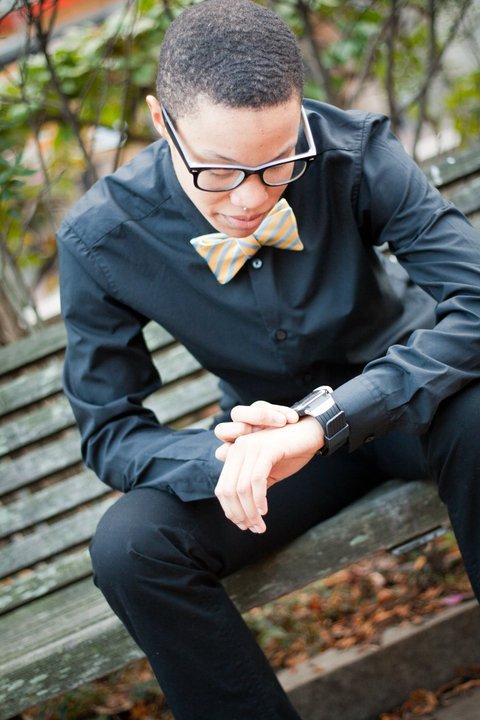
Alia Hatch. Photography by Cherie Tay
See more photographs at http://www.facebook.com/AliaHatch
Things you can do from here:
- Subscribe to bklyn boihood using Google Reader
- Get started using Google Reader to easily keep up with all your favorite sites
Thursday, December 8, 2011
Shout out to Al the pal. -Sebas’bklynboihood:Dirty...
Sent to you by moya via Google Reader:
Shout out to Al the pal. -Sebas'
Dirty Sensibilities… (featuring Al Janae and others…) http://www.aljanaehamilton.com/blog
Things you can do from here:
- Subscribe to fuckinfuckyeahsebastian using Google Reader
- Get started using Google Reader to easily keep up with all your favorite sites
click the image to go donate!!
Sent to you by moya via Google Reader:
Things you can do from here:
- Subscribe to Composed. using Google Reader
- Get started using Google Reader to easily keep up with all your favorite sites
katrinfane:Favorite People » Nina SimoneAll I’m trying...
Sent to you by moya via Google Reader:
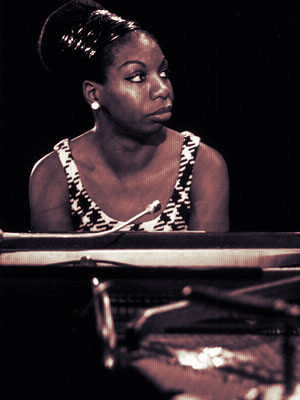
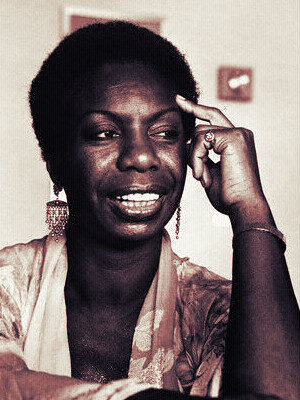
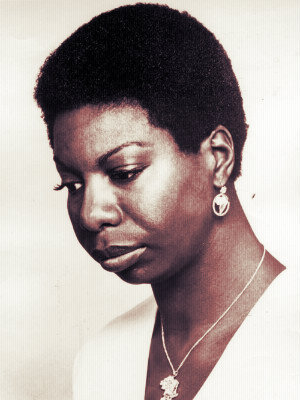
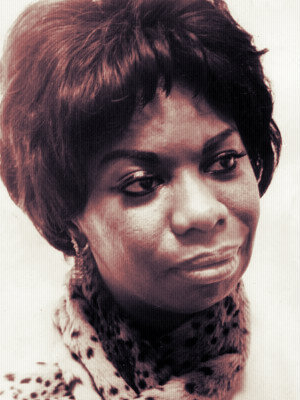
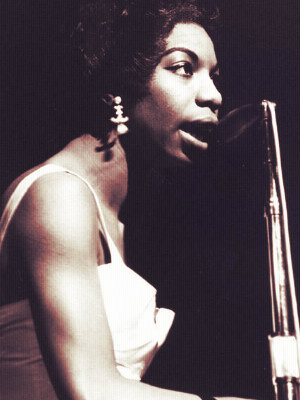
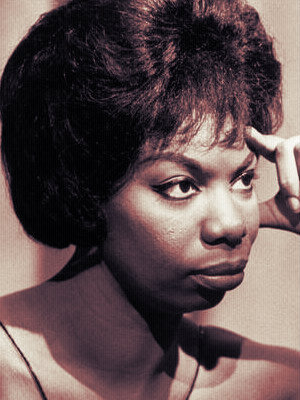
Favorite People » Nina Simone
All I'm trying to do all the time is just to open people up so they can feel themselves and let themselves be open to somebody else.
Things you can do from here:
- Subscribe to guerrilla mama medicine using Google Reader
- Get started using Google Reader to easily keep up with all your favorite sites
azealia banks — l8r
Sent to you by moya via Google Reader:
Things you can do from here:
- Subscribe to guerrilla mama medicine using Google Reader
- Get started using Google Reader to easily keep up with all your favorite sites
Teaching Moments: On Accountability, Love & Patience
Sent to you by moya via Google Reader:
I teach and do research on issues centering on identity and diversity. As the fall semester is coming to a close, I had the benefit of watching my students, many who started the semester ambivalent about difference and the need for diversity and acceptance, come full circle. Through presentations and last words, they expressed how life changing the opportunity and challenge to think about difference differently has been. Their embrace of diversity and each other (across race, class, gender, sexuality, religious and ability difference) has been transformative.
At the start of the semester I warn my students that learning about diversity and various methods and strategies for communicating about and across difference can be challenging. I tell them that when your concrete ideologies are compared with other concrete ideologies, it is not easy. I remind them that unlearning discrimination and prejudice will be difficult and uncomfortable. I encourage them to be open and open-minded and to trust the process. I tell them I am not their homegirl and therefore not invested in them "liking" me (so I will not be moved or persuaded against pushing them to fully engage the material, whether they like it/or me/or not) . Likewise, my mother was never interested in being my friend while I was growing up because she was busy raising me, teaching me right from wrong, and tempering my bad ass attitude because I thought I knew everything I needed to know to get along in the world (SN: Now that I am grown, my mother is my very best friend, and I am grateful that she was a parent when I was growing up, which is what I needed, not a friend). I ask them to question what they think they know and to be honest about their prejudices. I tell them we will have good days and bad days and that we will experience a range of feelings from ambivalence to fear to anger to confusion to excitement to curiosity to embarrassment to rage to sadness (and back to ambivalence again). I ask them to take what they learn and utilize it in their lives and relationships. I challenge them to hold others accountable in the way that I (will) hold them accountable. I beg them to not be silent in the face of discrimination of any kind (anymore).
In the classroom, I expect silence, discontent, frustration, rolled eyes, elevated voices, misunderstandings, anger, sarcasm, disrespect, and distance as we discuss taboo topics of class(ism), racism, sexism, homophobia, sexuality, ability and the various intersections between them.
I struggle through moments of the wrong things being said (and deciphering what the right response is), defensiveness, divisiveness, strife, self-imposed segregation, and blind allegiances. It is a practice of patience…and stamina. But teaching is repetitious (and frustrating/exhilarating/terrifying at times), and I am accountable to every potential representation in the room. There are particular rules in my classroom space. Students must filter their words. When someone says something offensive or problematic, I interrupt them immediately to correct them and explain how and why their word choice, regardless of intent, may be harmful or hurtful. I love on them, require their acknowledgment and accountability, and encourage them to be mindful of the impact of their words. I require them to listen to each other and not just respond reactively, or echo like minded individuals without being thoughtful and reflective. I put them in uncomfortable situations. I give them readings to make them uncomfortable. I share personal experiences to make them uncomfortable. The discomfort pushes them to think about what they are feeling and why. These are all teaching moments.
The first few weeks we juggle extremes and trade silences while they decide if what I am saying is bullshit or brilliant, because it challenges everything they (think they) know. And I worry that they will be offended rather than changed and/or walk away from the experience with the same stereotypic mindsets they started from. But then it happens. Unexpectedly and unannounced, they get it! I can see it in their eyes, read it in their posture, and experience it in the roundabout way that they become easy with one another and less judgmental. Our conversations become longer. We tell transparent tales and connect in the ways that we are alike, astonished sometimes that we are not nearly as different as we look/seem. We look at each other instead of avoiding glances. We listen to each other's stories instead of passively hearing each other's words. And while I can never pin point when it happens, there are miraculous moments when brave students share their truths, when public stories give us the opportunity to have private conversations out in the open, and when misjudgments, stereotypes, and mischaracterizations are corrected through conversations that prove missing each other on purpose misses the point and wastes opportunities for connection.
If ignorance is bliss, it is also dangerous and we are accountable for what we know. We are also responsible for having difficult conversations. Because of this, we will occasionally be misunderstood or attacked for standing up and defending our passions. And that is okay. I feel that we are called to love people past (in)difference. And like I said, I am not their homegirl ![]()
And while teaching (classes and the larger public) is not always easy, seeing the benefits of the effort (which takes time, sometimes a lifetime), reminds me that it is always worth it!
Things you can do from here:
- Subscribe to The Crunk Feminist Collective using Google Reader
- Get started using Google Reader to easily keep up with all your favorite sites
Monday, December 5, 2011
Rainforest Middle: The Gift of Dark Days
-Mothering in Wilderness: A Sermon by Melva Sampson (among many other references)
This is the part of the year where the darkness prevails. Sun gone before work gets out. Kids barely have a chance to get home. This is the time of year where usually I start protesting. Who even thought human life in this part of the hemisphere at this time of the year made sense. The time when I shake my head, convinced that my ancestors from closer to the equator want my body back. Where the workaholic in me used to lament the short days and way they made everyone, including me, just want to go sleep.
While I was in middle school, my mom was in graduate school for psychology and sometimes I think I internalized her textbooks. During very normal occurrences (like pretty much at the same point in every moon cycle) I start diagnosing myself. And every year as solstice approaches I get clinical. Wanting to sleep all the time? Less energy? More reflection? Is this it? The the onset of the depression I've been vigilantly looking out for since I was 12?
But FINALLY (if not necessarily actually for the last time) I have been able to get over it. I am not in the wrong place at the wrong time. The sun is not gone, the planet is not wrong. The moon is not laughing. And I am not a robot that is supposed to work unchanged as the planet shifts. This happens every year. Darkness prevails. And it is a gift.
This understanding of darkness as a gift, more general even than my hard-won, intergenerationally taught black self-love and communal appreciation, at least as cosmic as my blissed out love of the sacred skin of my partner, came from an experience in a rainforest at night.
How did I end up in a rainforest at night you ask? Good question. I surely didn't imagine my Quirky Black Behind would be in a rainforest at night, but lo and behold while in St. Croix communing with the spirit of Audre Lorde and the awesomeness of Gloria Joseph I met a Quirky Black Midwife (Hi Dr. Chinzera!). And as she and her daughters taught me about the ecological and cultural history of the resistance of enslaved Africans in St. Croix we manged to stay in the rainforest through a rainstorm into night. And there, in a darkness I had never experienced, much much deeper than out-in-the-country or even Anguilla darkness which is interrupted by the brilliance of stars and the often moon. This darkness, where even the moon, or a possible star beyond the rainclouds, was covered by layers and layers of cathedral trees, was the most extreme darkness I (with the privilege of having adequately supplemented nearsightedness and therefore mostly uninterrupted vision) have ever experienced. And for me this darkness was a profound shift in my relationship to my own ability to see. My own understanding of vision. This was a darkness that was not empty but full with huge trees and vines and animals and plants and the sound of rain touching everything that I could not see. I was safe with a family of folks who had lived in communion with the rainforest for years, but profoundly alert and awake. Surrounded by the undeniable presence of everything that I could not see, I could feel my heart.
And like a miracle I started having revelations. I was able to sense invisible but profoundly present truths in my life. I was able to get intense clarity on unseeable futures. I made major life decisions. (Like my decision to get trained as a full-circle doula and to start a mother-daughter doula practice with my mom! But more on that later!) I arrived at a major truth about life. There is so much happening, so much surrounding us that for many reasons we cannot sense with whatever senses are dominant to us. And for that reason many truths with healing power for us remain outside of our consciousness. I got clear about the fact that there were many realizations crucial to my own healing that were right there in my heart, invisible. And until darkness, aka that situation where it becomes necessary to be aware of everything that you can possibly be aware of, whether it is obvious or not, whether is is accessible by senses I am used to using or not. Darkness is the gift of the infinite presence of transformation. Like they say on the Blackstar album..."the color of the universe."
So now, during these dark days, I am present to the gift. Darkness is full of revelations, delicious unknown truth that I get to learn through stillness, intimacy with myself and others. The use of ways of knowing that I usually ignore. And so this year as the days get darker I am gathering food, preparing food, treasuring the warmth of friends and spending much time in my sweet little cave visioning a future I couldn't see before. Drawing dreams in marker, learning new methods, and incubating plans and schemes that won't see light until 2012. (I can't wait to tell you! But I will! :)
And so I am wishing you the gift of your own darkness, and for those who share this part of the hemisphere with me, the gift of these darker days where dreams are so thick we can touch them. And sleep into them and grow deep in ways no one will know about for a green while.
So eat and stay warm. Sleep and be satisfied. Dream and be dark.
I love you through the coldest day with the warmest need. Forever.
Love,
QBG Lex
Support love-filled community accountable transformative education! Become a monthly sustainer of the Eternal Summer of the Black Feminist Mind Project! http://blackfeministmind.wordpress.com/donation-station/
www.mobilehomecoming.org
www.brokenbeautiful.wordpress.com
www.thatlittleblackbook.blogspot.com
www.blackfeministmind.wordpress.com
.jpg)
